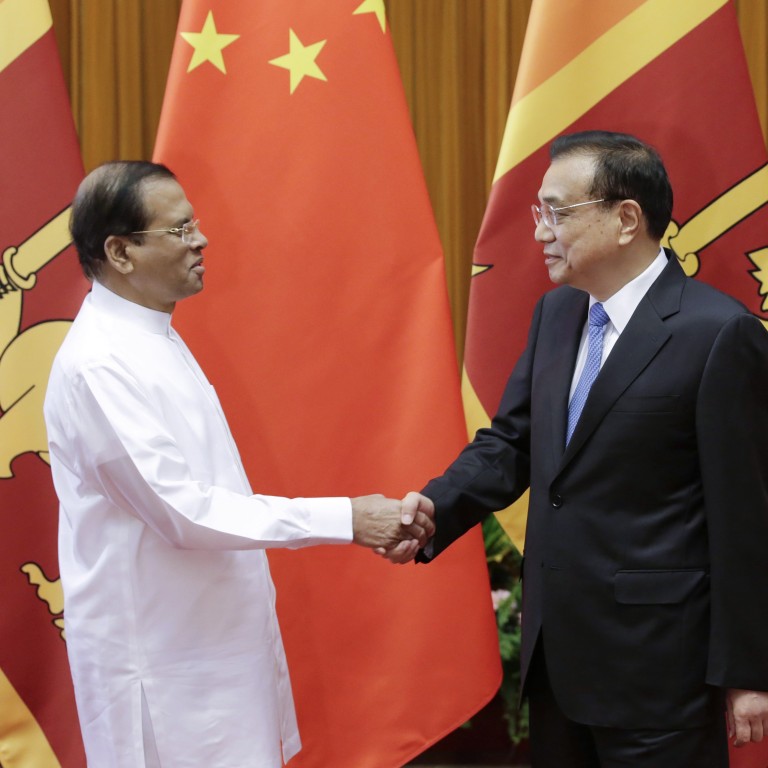
The China question in Sri Lanka’s presidential election
- One of the front runners in Saturday’s poll could steer Colombo closer to Beijing but the focus should be on the longer term, observers say
Under the administration of President Maithripala Sirisena – who is not running for re-election – Sri Lanka focused on relations with India and the West, putting ties with Beijing and Chinese-backed projects on hold.
It interrupted the trend under his predecessor Mahinda Rajapaksa, who held the post from 2005-2015.
But now Rajapaksa’s younger brother, Gotabaya Rajapaksa, is a front runner among the more than 30 candidates in the race, and a win for him could herald a return to a stronger Chinese relationship.
Sri Lankan President Sirisena will not seek re-election
Zhang Jiadong, a South Asia expert at Fudan University, said the electoral outcome could affect relations with China but the key was to focus on the bigger picture.
“Whoever is elected, there may be short-term changes in the relationship,” Zhang said. “But Sri Lanka-China relations will surpass these things in the long term.”
After coming to power in 2015, Sirisena put many Chinese investment projects on hold, including plans for a massive “port city” in the capital of Colombo.
The administration suspended the project because of concerns about the awarding of a contract to a Chinese construction company but work has since resumed on it.
Critics accuse China of ensnaring Sri Lanka in “debt-trap diplomacy”, claiming that Beijing imposes heavy debt burdens on developing nations from South Asia to South America to try to increase their reliance on China, and expand Beijing’s global influence.
Terminator versus pad man: for Sri Lankan voters, a tough choice
Questions were raised over two major projects: Hambantota port and neighbouring Mattala Rajapaksa International Airport.
Both projects were built with Chinese funding and both ran into big problems.
The airport was completed in 2013, but a lack of traffic meant it was closed to commercial international flights in 2015. Hambantota port was completed in 2010, but leased to China for 99 years in 2017 to ease the heavy debts owed to Beijing.
Nevertheless, China continues to sign infrastructure deals with Sri Lanka, including a nearly US$1 billion loan for a roadway project this year.
Madhav Nalapat, a professor of geopolitics at Manipal University, said the economic fate of these projects would largely depend on port traffic from neighbouring India.
Will a new Rajapaksa pivot Sri Lanka back from US to China?
“Until Indian entities begin to use these facilities in a big way, they will remain a huge drain on the economy,” Nalapat said.
“[But] the economic linkage between [China] and Sri Lanka has expanded so rapidly that all parties will continue this.”
Rajesh Basrur, a professor in South Asia studies at the S. Rajaratnam School of International Studies in Singapore, said Sri Lanka would continue to seek major investments from China whatever the outcome of the elections, but would also look for funding from Oman, India and Singapore.
“India is less concerned about Chinese investments per se than in whether these will translate into an enhanced strategic foothold for Beijing in Sri Lanka. Political leaders in Colombo, regardless of party affiliation, have no interest in antagonising India, so they are unlikely to risk this,” Basrur said.

